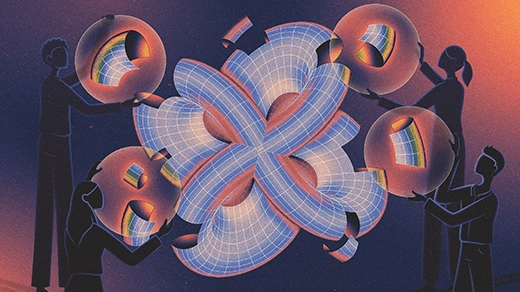Handicapping the 2018 Fields Medal
In 2014, the prestigious Fields Medal — considered by some to be the equivalent of a Nobel Prize in mathematics — went to Artur Avila, Manjul Bhargava, Martin Hairer and Maryam Mirzakhani. The International Mathematical Union awards the prize every four years, naming up to four recipients under the age of 40. The selection is based on major early-career contributions, but also on the promise of future achievements — hence the age restriction.
Who will win in 2018?
One name on everyone’s shortlist is Peter Scholze. At 28, he’s been a full professor at the University of Bonn for four years. He’s the youngest-ever recipient of Germany’s distinguished Leibniz Prize. Now he’s rumored to be a top contender for the next round of Fields Medals.
As Erica Klarreich reports in her profile of Scholze for Quanta Magazine, other mathematicians regard him with “a mixture of awe and fear and exhilaration,” in the words of Bhargav Bhatt, a mathematician who has collaborated with Scholze. When Scholze was 22, he condensed a number theory proof from 288 to just 37 pages. His doctoral thesis on perfectoid spaces and the weight-monodromy conjecture has had far-reaching consequences for arithmetic geometry. And he has also made important contributions to the famously challenging Langlands program — the web of conjectures connecting number theory, geometry and analysis.
Mathematicians brace themselves when Scholze moves into their fields. “It means the subject is really going to move fast,” Bhatt said in the profile. This is yet another reason why Scholze is such a heavy favorite for the Fields.
Scholze himself tends to shy away from all the buzz surrounding his achievements. “At times it’s a bit overwhelming,” he told Klarreich. “I try to not let my daily life get influenced by it.”
Scholze has three more chances to win a Fields Medal before reaching the age limit. If, as many predict, he takes the prize at the 2018 International Congress of Mathematicians in Brazil, he will become one of the youngest winners in history.
For more on this story, check out Erica Klarreich’s profile, “The Oracle of Arithmetic,” on QuantaMagazine.org.




